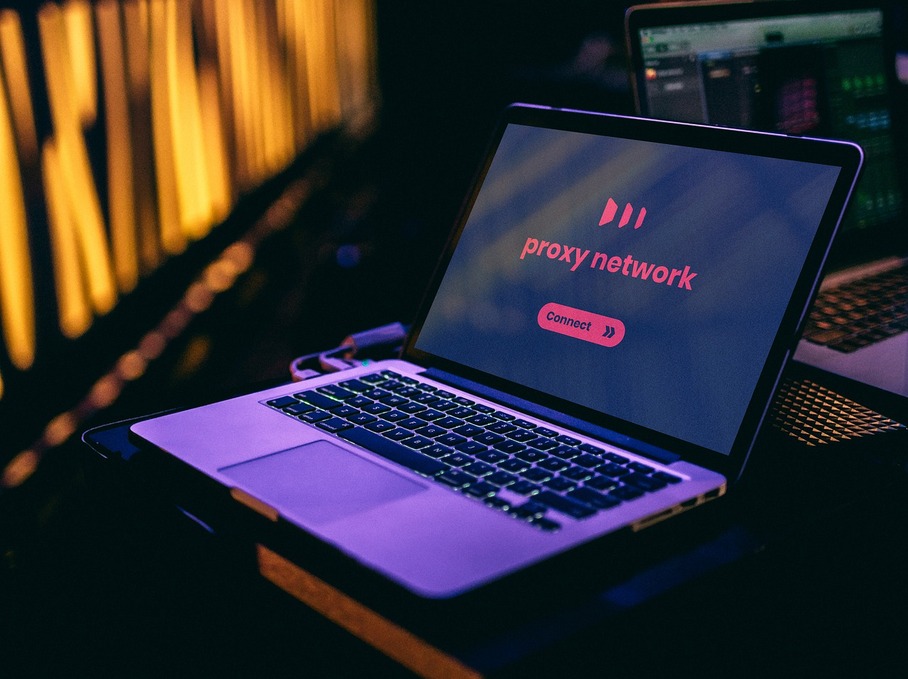Primary Uses of a Proxy Server

Proxy services are an essential tool for anyone accessing the internet from a different location. It’s useful for people who work remotely and need to access their company’s network or those who travel a lot and want to watch videos or listen to music from another country.
Proxy services act as intermediaries between you and the internet. Requests are forwarded to the website you’re trying to reach, giving the impression that you’re accessing the site from a different location. Using this method, you can avoid being tracked or targeted by advertisers or governments by masking your real location.
What is a Proxy Server?
Proxy servers, also called proxy machines, are computers that receive internet requests and forward them to the real website. The server routes all the information you send out, like a request to buy shirts on H&M, through a different IP address.
Proxy services allow you to browse the internet anonymously. It does this by routing your traffic through its servers, which are located in a different location from where you’re accessing the internet. Using this method, you can hide the IP address of your computer from websites.
Individuals and companies use proxy servers for security and network performance reasons, and you can also tap into some cool features when using a proxy server for your internet browsing.
What are the primary uses of a proxy server?
Proxies can be used for various purposes, but they’re commonly used by businesses and individuals looking to access blocked sites.
If you request access through them, proxy servers increase your chances of getting access to the desired website. The proxy server makes your IP address appear more legitimate to the target website, even if it’s completely following Internet rules.
Proxy servers hide your IP address from various sources that could be monitoring your network traffic.
Anonymous proxy servers hide your IP address from websites you visit. Proxies are commonly used for the following reasons:
- To access blocked sites or content from another country, such as Netflix and Hulu
- To bypass government censorship and avoid geo-restriction
- To access restricted resources (like torrents) without revealing their identity
How can proxy servers be used?
A web server handles requests on the internet through HTTP and HTTPS protocols and is also called an HTTP server. A web server is distinct from other types of servers in that it handles HTTP and HTTPS requests, differentiating itself from application servers (e.g., Gunicorn) and servers for other protocols (i.e., WSGI). Other servers serve as intermediaries between backend languages and external libraries, which is a different level of abstraction from web servers.
The following are some of the common tasks handled by web servers:
- Serves HTML, CSS, and JavaScript files.
- Provides images and videos.
- Provides error handling for HTTP requests.
- Provides concurrent service to users.
- Directs URL matching and rewriting.
- Provides dynamic content processing and serving.
- Optimizes data usage and speed by compressing content.
- The browser can cache static content.
How can proxy services generate value?
In order to get around internet censorship and geographic constraints, proxies are frequently used. You can get over these online snares by using reliable proxy servers (or cutting-edge VPNs), though.
Compared to individuals, businesses employ proxies for a considerably broader range of purposes. Among them are
- Limit and manage online activity among employees: An organization can increase both the productivity and security of the company by deploying a proxy network to prevent employees from accessing dangerous and non-work-related websites.
- Manage peaks in traffic: Most businesses host their websites and services on many servers, which are dispersed across various locations. By using a proxy server to unify access to many servers that house your content, you can withstand considerably higher traffic volumes without the servers going down.
- Enhanced security: Companies that employ proxy servers to safeguard their corporate networks benefit from increased security. Hackers may access the proxy server since it handles most external access requests; however, your actual network is still secure, at least for the time being. With some adding encryption to further boost security, proxy servers are also useful for email security and handling potentially dangerous attachments.
Conclusion
The primary uses of a proxy service are to increase your privacy and security, protect your anonymity, and maintain control over your data. These benefits are especially important when working with sensitive information, such as personal data or financial records. A proxy server can also help you bypass censorship by connecting you to blocked websites or preventing you from being tracked by advertisers.
Proxy servers can be used for many other things as well—from protecting yourself from DDoS attacks to masking your IP address to access geo-locked content. For more information on everything, proxies, read this comprehensive article.

Mahesh Kumar is a dynamic marketing consultant and tech enthusiast with a passion for driving business growth through his innovative strategies and cutting-edge technology. With 6 years of experience in the industry, he has helped numerous businesses leverage the power of digital marketing to reach their target audience, build brand awareness, and increase sales.







